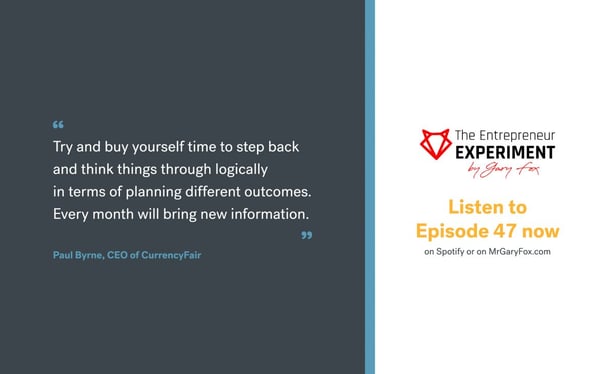Strategic planning for future growth is an ongoing and necessary part of managing your business. Staple considerations include:
How do we grow quickly without burning through cash? How do we plan for the resources we need, while staying flexible enough to scale up or down depending on market and performance?
Businesses with a growth mindset will likely look to invest in digital marketing. It offers cost-effective and scalable ways to reach your target audience. It’s also a great way to assess market interest, innovate and test new ideas.
The fundamental challenge most companies face is that creating and managing a full digital marketing team can quickly burn through cash. Ideally you need to cover a range of expertise, from affiliate marketing to paid social. And it’s not easy to predict which tactics will work best. Or, in a fast-moving industry, which areas of digital marketing will flourish and which will become redundant. An unexpected Instagram algorithm change could spell disaster for your social strategy, and mean that you need to redirect resources overnight.
There are good reasons why approximately one-third of companies outsource some part of sales and marketing. Outsourcing, or partial outsourcing, is a great way to bring in the required expertise, and accelerate growth.
What should I outsource?
Typical digital marketing teams consist of experts in the following areas:
· Search Engine Optimisation (SEO)
· Affiliate marketing
· Pay per click advertising (PPC)
· Social media marketing (organic and paid)
· Digital marketing strategy
· Web and email services (e.g. website design, website maintenance, content management, email marketing)
· Content marketing
If you’re not familiar with the world of digital marketing, you’ll need to bring in support to help decide which of the tactics above will be suitable for your business.
If you already have your strategy, you’ll know which of these elements you need. Then it’s a case of mapping your existing resources against these areas of expertise. Perhaps you’ve hired a marketing manager who has experience with content marketing and social media, but not PPC advertising. Or maybe you have an internal developer who can build and optimise your website, but you need a team to take care of the marketing. Identify which areas you need (and want) to bring in house, and which can be taken care of externally.
The case for outsourcing vs insourcing
More cost-effective and increased flexibility
When you bring someone in-house, you spend time and money on recruitment, onboarding, paying their salary and taking care of all your employer obligations. So outsourcing can offer considerable cost savings for your business. Many agencies or freelancers will offer the option of paying per project, or per day, or offer a trial period so you can see how things go.
Outsourcing therefore reduces your commitment, making it easier to pivot if you need to change direction quickly. If your paid social campaigns aren’t getting results, just redirect the budget somewhere else. Whereas if you hire an in-house paid social specialist, you can’t make them into a PPC expert overnight. The opposite is also true. If your paid social campaigns are performing brilliantly, working with an agency means it’s easy to increase the budget and quickly access more support. Whereas if you need to hire more team members, there’s a time lag while you recruit.
Of course, there are cases in which outsourcing really isn’t cost-effective. We will cover this later in the article.
Access to tools, software and contacts
Online marketing agencies already have access to all the tools they need to do their job. There are advertising and remarketing software, research products, social media advertising platforms (e.g. Facebook’s Power Editor), and Google products such as Ads and AdSense, to name just a few. These services can be expensive. Even when they’re free to use, your teams need to spend time learning how to use them.
By outsourcing, you save on subscription costs, as well as the time and training it takes to become experts on these platforms.
A further bonus of outsourcing is that agencies often have direct relationships with platforms such as Facebook and Google, so if something goes wrong, they can easily escalate the issue.
Enhanced expertise
Digital marketing agencies and freelancers work with their area of specialism all day, every day, for a number of clients and often across a range of industries. When you outsource your digital marketing, you’re tapping into this wealth of knowledge, and accessing expertise that you might not be able to afford full-time.
Digital marketing specialists also make time to follow current trends in their niche areas, and can spot areas of opportunity and improvement that you or your teams could miss.
A fresh pairs of eyes
Finally, it’s often the case that you and your employees are too close to your product or business to see what’s really happening. Working with external teams can help you see things from a different angle, which often provides greater insight into the customer’s perspective. This second opinion can vastly improve your strategy.
Things to keep in mind when outsourcing
By now, you might be convinced of the merits of outsourcing. However, before you sign a contract with a digital marketing agency, it’s important to be aware of the potential pitfalls.
Your agency’s availability
While your staff are (usually) fully available to you at any time during the working day, agencies and freelancers are managing your work alongside that of other clients. And if they’re based overseas and working in different time zones, this further complicates things. Before you sign, ask about their service level agreements with clients. Do they have a specific window in which they aim to reply to requests? Will you need to save all feedback and actions for a weekly meeting? What happens if your main contact is unavailable? Do due diligence, and then plan well to get the most out of the relationship.
Hidden costs
If you’re paying an overseas agency, remember to factor in exchange rate and transfer fees. Banks charge up to 8x more than other currency exchange solutions such as CurrencyFair. We offer competitive rates - on average just 0.45% above interbank rate - so you’re always in control of what outsourcing is costing you.
And there may well be other costs associated with the work. If you have an in-person meeting, will the agency charge you for their travel and hotel costs? Read the terms and conditions of any agreement very carefully.
Looking to understand all the hidden costs for your business? We look in detail at the hidden costs of a remote workforce here. 
Check what you own
Find out what you will have access to, and what the agency will ultimately own. Think about:
· Campaign data
· Customer or prospect data
· Content assets
· Reports
If you decide to bring the work in-house, or change supplier, you might need access to your data and assets. Otherwise you could be locked into a long-term relationship with an agency that’s not right for you.
Relationship management
We mentioned above that there are cases when outsourcing work becomes less efficient, and more costly, than running an internal team. If no-one is actively managing the agency relationship then you could end up paying high fees without getting the output you expected.
When you outsource, you still need to put in the legwork to find the right people to work with. And then brief your chosen agency, and follow progress to make sure things stay on track. Ideally you’d have someone managing this relationship who understands the basic digital marketing principles, so they can challenge the agency’s approach if needed.
No perfect formula
So, should you outsource fully? Invest in a full in-house team? Or take a ‘partial outsourcing’ approach? Like most things in business, there’s no tried and tested combination you can follow that will guarantee success. Outsourcing works for some, while others feel they need to retain full control by keeping skills in-house. For businesses at the start of their growth journey, it can be a cost-effective way to see which tactics work. Then, as you grow and become more comfortable with the myriad elements of digital marketing, you might decide it’s better to bring some of the work in-house.
Sources:
https://neilpatel.com/blog/outsource-online-marketing/









.png?width=600&name=Untitled%20design%20(23).png)


